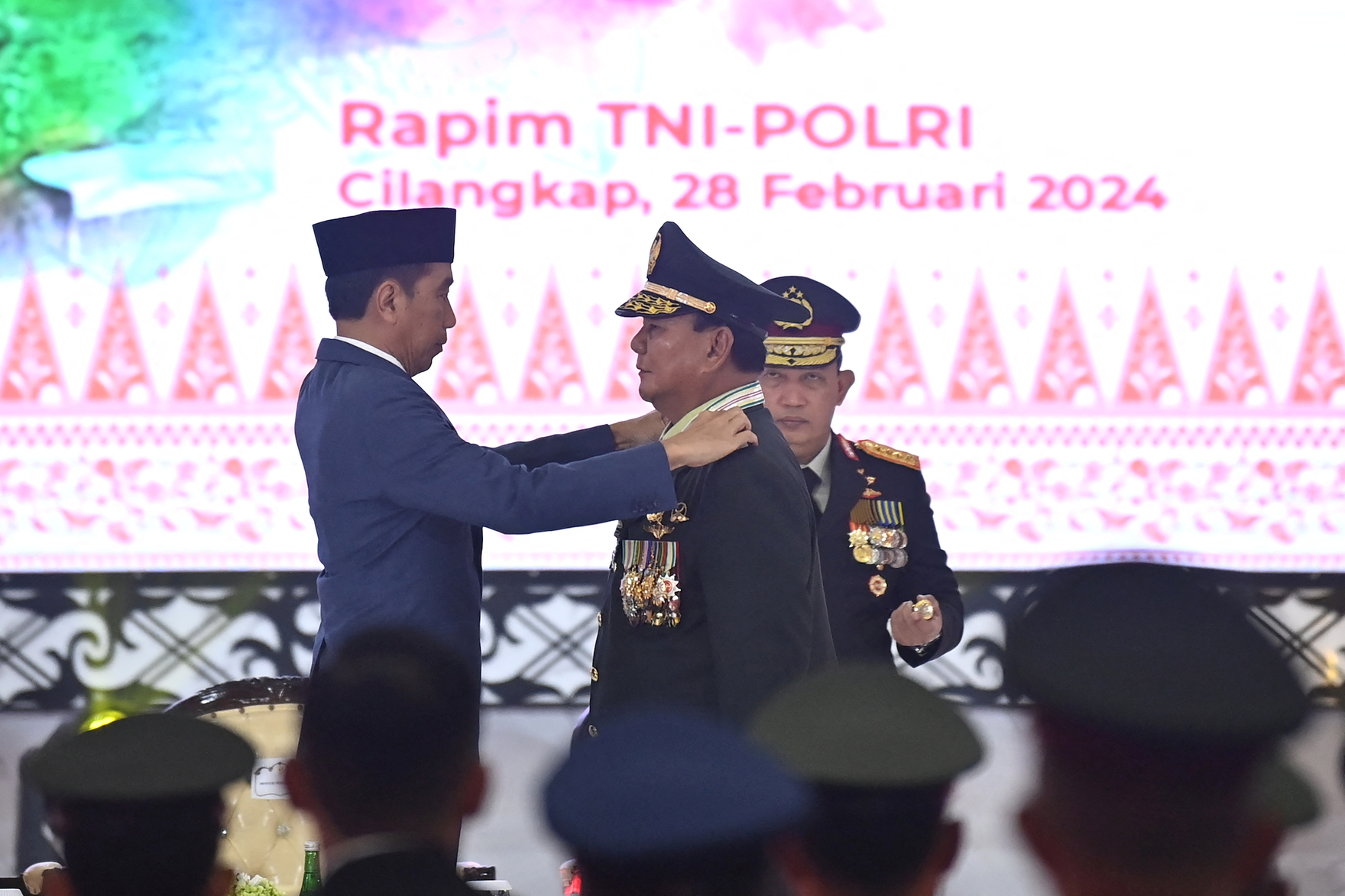On February 14, 2024, Prabowo Subianto — a former general accused of many past human rights abuses and the former son-in-law of Indonesian dictator Suharto — was elected Indonesia’s president. Prabowo had run for president in 2014 and 2019, narrowly losing both times to Joko Widodo. But this time Prabowo won easily, securing a first-round victory of around 58 percent of the vote.
There was no mass-scale foreign disinformation or interference campaign in the way that we have previously understood it. China appears not to have employed bots. Russia did not try to sow discord online. Western Cambridge Analytica-style companies that base strategies on voter deception were seemingly not present. Despite an initial alarm about the use of deepfakes, it was not widespread. TikTok videos were crucial, but hate speech on the platform was not a feature of this campaign.
Yet Prabowo’s victory is concerning for democracy in the region. Over the past six months, Prabowo’s public persona was transformed from that of a 72-year-old twice loser, who at times appeared tired and unwell and was lagging in the polls, into an affable, cuddly grandfather with a quirky dance, who never looked like losing. The question is: Was it disinformation? Or more generally, how do we think about the role of social media in this campaign, if it was not spreading disinformation in the forms we have come to recognize?
To be sure, there were enough examples of fake news during the campaign to keep fact-checkers busy, but overall it was not a contest based on slander and lies. The narratives previously common in Indonesian election campaigns — candidate adultery, being pro-LGBTQ+, or not being Islamic — did not dominate the discourse. Even Indonesia’s usual campaign bogeyman — “the communist” — did not appear as an influential meme in this election. All candidates engaged in five televised national debates, and mostly told the truth.
Jokowi’s dynastic move outraged those who have been concerned about the steady decline of democracy in Indonesia over the past 10 years.
Narrative Control and Image-Making
The most important factor in Prabowo’s victory was the support of incumbent president Jokowi (as Joko Widodo is popularly known), who in return made a deal for his son Gibran to run as Prabowo’s vice-president. Jokowi’s dynastic move outraged those who have been concerned about the steady decline of democracy in Indonesia over the past 10 years. But he remains an extremely popular leader, with approval ratings in the 80 percent range throughout his presidency, even when Indonesia was the epicentre of the COVID-19 pandemic.
One reason for Jokowi’s popularity has been his management of public discourse through social media influencers, “buzzers” (pro-government digital labourers who promote the president and attack his critics) and an ever-increasing state crackdown on dissent. Having already joined the Jokowi government as defence minister, once he was anointed as Jokowi’s successor, Prabowo’s popularity skyrocketed. Prabowo was estimated to have up to 30 times more cash than his rivals, which included a highly effective social media campaign. At the same time, some of the existing social media infrastructure of Indonesia’s elite-driven political campaign industry was now mobilized to support him.
In 2014, Prabowo ran as a rabble-rousing nationalist populist, and lost. In 2019, he ran as a populist friend of political Islam, and lost again. This time, Prabowo softened his image by employing what has come to be called a gemoy (Indonesian slang for cute, or adorable) campaign, complete with cartoon avatars generated by artificial intelligence (AI), signature dance moves and cuddly caricatures. TikTok was crucial to this image shift, particularly with younger voters. Some pollsters say that the gemoy narrative also enabled Prabowo to increase his appeal among female voters — voters who in previous elections had been wary of his image as a hyper-masculine military figure with a notoriously bad temper.
Rethinking Disinformation
In a sense, Prabowo’s campaign is the opposite of what we understand disinformation to be. Rather than employ negative campaign tactics, the campaign aimed to consistently evoke a positive energy. Prabowo often agreed with and thanked rivals during debates, while avoiding interviews and press conferences that might expose him to difficult questions about his past or scrutinize his future policies.
In this respect, the Indonesian campaign was similar to the 2022 election in the Philippines, although with some key differences. In the Philippines, a former dictator’s son was elected via a triumph of disinformation, and Ferdinand Marcos Jr. refused to even attend debates. Prabowo did not need a barrage of sustained and well-orchestrated TikTok videos whitewashing history by glorifying Indonesia’s authoritarian past. The Prabowo campaign was simpler. It was a fake campaign without fake news. AI was used to sanitize discourse rather than muddy it.
This new type of narrative manipulation is a growing phenomenon that scholars are beginning to identify more closely, with El Salvador and India providing other pertinent examples. In Indonesia, Inaya Rakhmani and Muninggar Sri Saraswati have written about the engineering of consent and coercion. Sociologist Nicole Curato described the recent Philippines elections as a campaign of “good vibes and toxic positivity.” Political scientists Sergei Guriev and Daniel Treisman published a book titled Spin Dictators, their term for “a new breed of media-savvy strongmen” who distort information in their redesign of “authoritarian rule for a more sophisticated, globally connected world.”
It is too soon to declare Indonesia under Prabowo as definitively fitting into some form of digital authoritarianism. But the danger here is that new forms of information distortion may fly under the radar, if we are to only see disinformation as foreign computational propaganda and fake news.
Prabowo’s character, in reality, is neither cute nor cuddly, and his new image by no means represents the truth. We must also anticipate that Prabowo, once he is in power, may neglect his makeshift alliance with Jokowi and his son and sideline them both. If that happens, Indonesians who voted for continuity may look back on the 2024 campaign and wonder what it was actually about.
This is the second piece in a series exploring the intersection of technology and pivotal international elections in 2024. The series has been organized by CIGI in partnership with the Centre for the Study of Democratic Institutions (CSDI) at the University of British Columbia.



